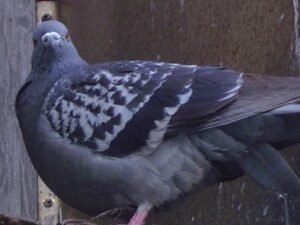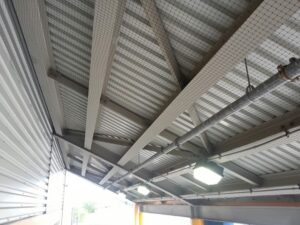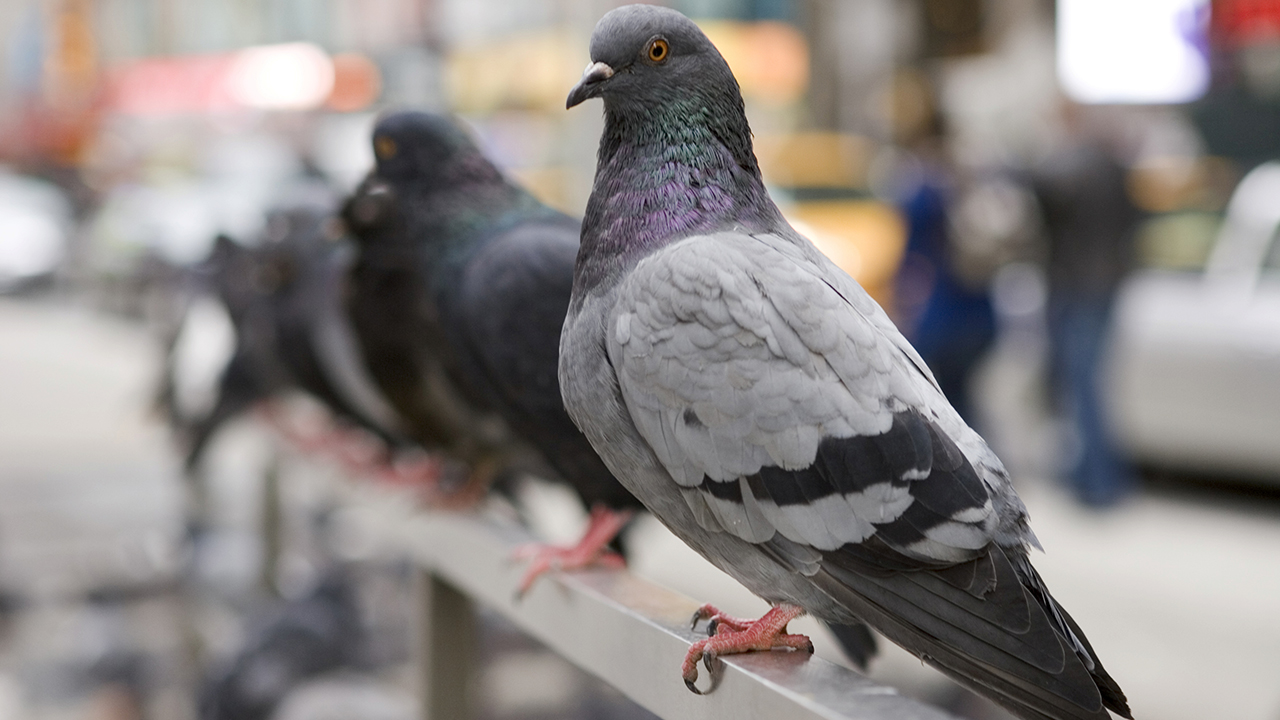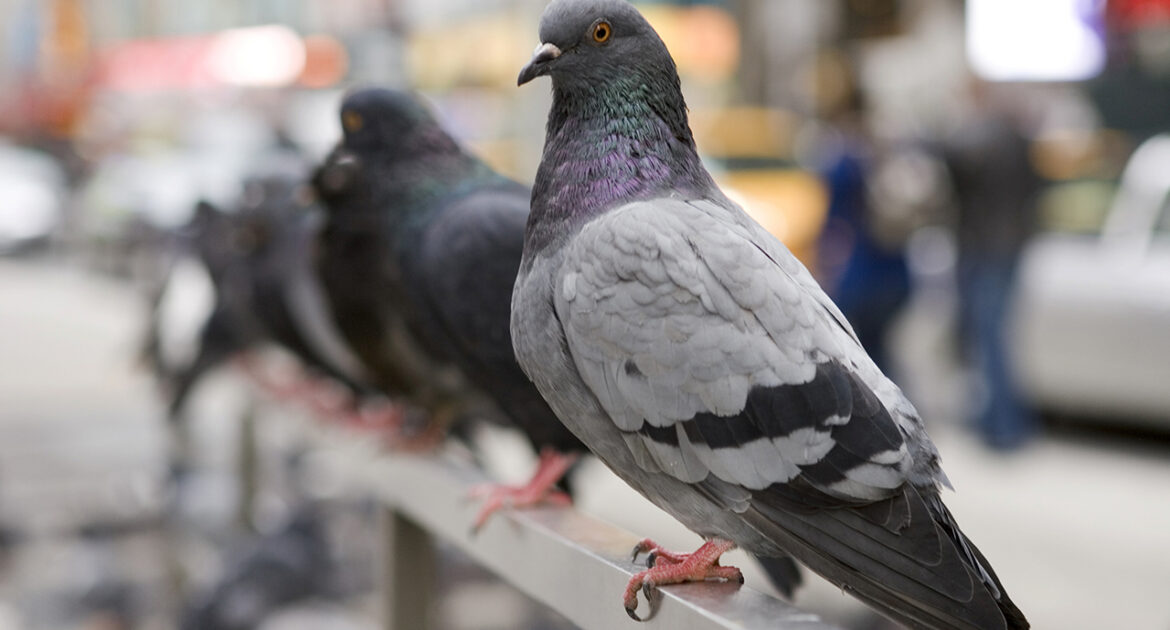Pigeons have a long history with humans. In Europe, pigeons were a common source of meat in the Middle Ages. They were once used to carry messages and have even been used in racing. During WWI and WWII, carrier pigeons were used as part of the communication systems. There’s even a pigeon museum in Oklahoma City, Oklahoma, dedicated to man’s oldest feathered friend.
Modern pigeons are considered a nuisance. They don’t seem to be scared of humans, nesting and roosting under eaves, in chimneys, or on roofs where they quickly become problematic. Learn more about how to keep pigeons away and why you shouldn’t let pigeons make a home in your building or house.
Problems of Pigeon Habits and Habitats
Pigeons aren’t menacing to humans, but they can be problematic when they build a nest inside a structure. Although most people love to feed pigeons in the park, they aren’t so happy with the negative effects. The same place where pigeons roost becomes a space for pigeon droppings. These droppings are acidic and cause a lot of damage to property. Eaves and gutters can get clogged, which leaves your home vulnerable to water damage and leaks. Humans can also potentially slip and fall on the mess that accumulates. In addition, pigeon droppings can carry disease and parasites.
 Pigeons damage plants and crops in search of food. They don’t have natural predators, so it can be difficult to control their population. A group of pigeons can be very noisy, especially when dealing with the sound every day, 24 hours a day. Movies may romanticize the cooing that pigeons make, but when you’re woken up on a lazy Sunday morning, it’s not so idealistic. Pigeons may also bring lice, ticks, and other insects to your home through their nest.
Pigeons damage plants and crops in search of food. They don’t have natural predators, so it can be difficult to control their population. A group of pigeons can be very noisy, especially when dealing with the sound every day, 24 hours a day. Movies may romanticize the cooing that pigeons make, but when you’re woken up on a lazy Sunday morning, it’s not so idealistic. Pigeons may also bring lice, ticks, and other insects to your home through their nest.
How to Get Rid of Pigeons
If you have a flock of pigeons living in your home or business, you will need to take multiple steps to eliminate the problem. Modern pigeons may not be used as messengers any longer, but they do have a strong homing instinct. They cannot simply be relocated to remove them. Removal should be performed by a professional wildlife service that can employ countermeasures that prevent pigeons from returning to the nest.
- The nest area will need to be cleaned and disinfected.
- All food and water sources will have to be removed.
- A prevention plan will need to be established.
- Entry points of the home must be sealed off properly.
One important consideration in removing birds is to know any laws that pertain. In some jurisdictions, it is illegal to remove birds and bird’s nests with eggs, even if the birds are a nuisance. Depending on where you live, you may need to work with a wildlife agency to remove the pigeons, which is why we always recommend calling a professional.
How to Keep Pigeons Away From Your Home
Once you’ve removed the pigeons, prevention is key. The goal is to make your home as unappealing to birds as possible. Installing physical barriers, such as screens or netting, can prevent pigeons from roosting, but it’s not always practical in certain locations. There are other options that deter pigeons from nesting, such as spikes, audio, or taste deterrents and bird wire. In some cases, it’s enough to install reflective surfaces or metal surfaces that reflect sunlight. These deterrents affect a pigeon’s ability to see and keep them away from your garden or home. Keep in mind that you may want to deter pigeons from roosting in your garden without repelling beneficial wildlife, such as hummingbirds or bees. Professional wildlife removal services can help you get rid of pests without harming other wildlife.

Don’t try to deal with a pigeon nest on your own. Professional wildlife control services in North York are available to keep your family safe and to prevent re-infestation. Contact Skedaddle for safe, effective, and humane wildlife removal.




